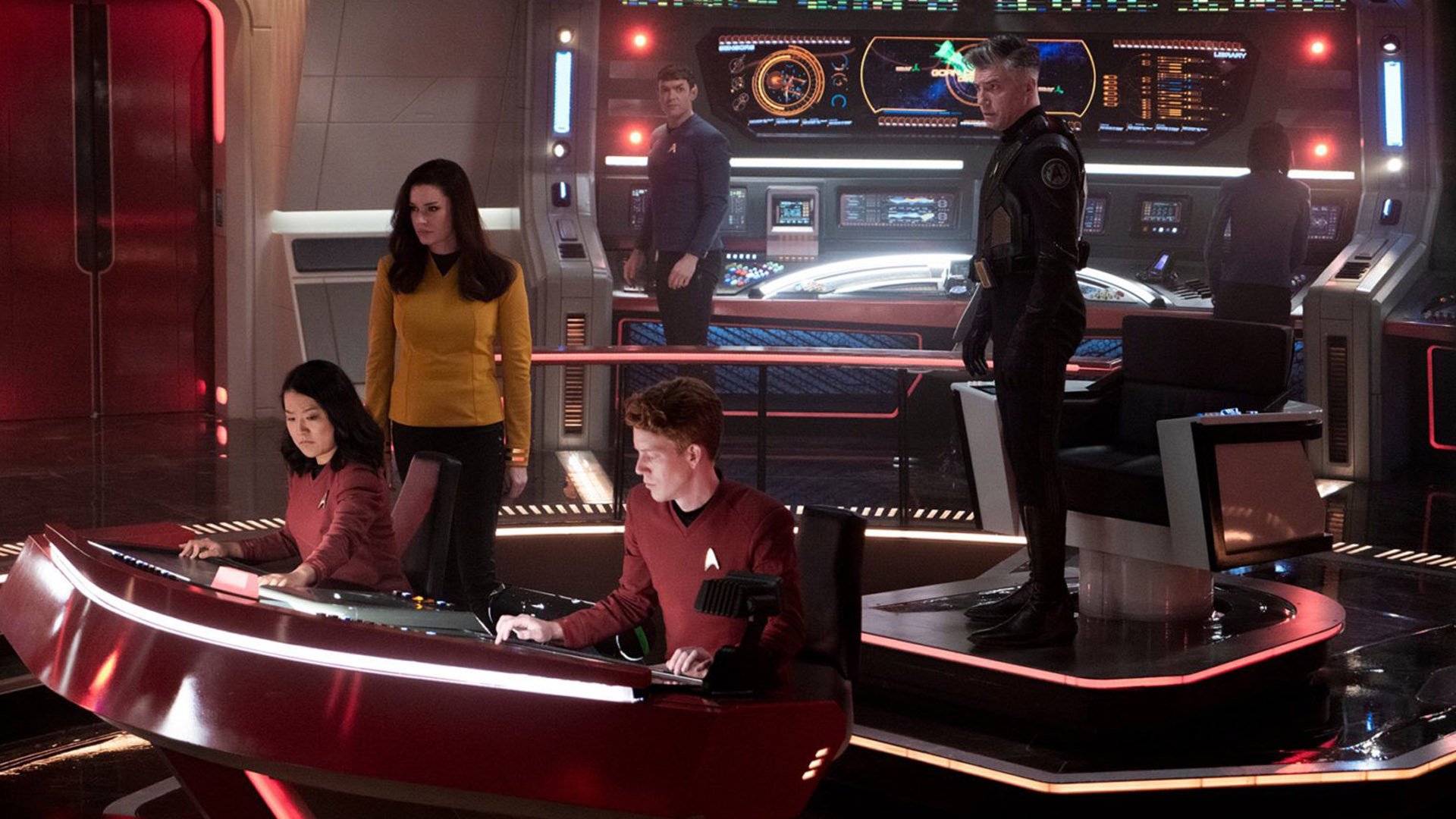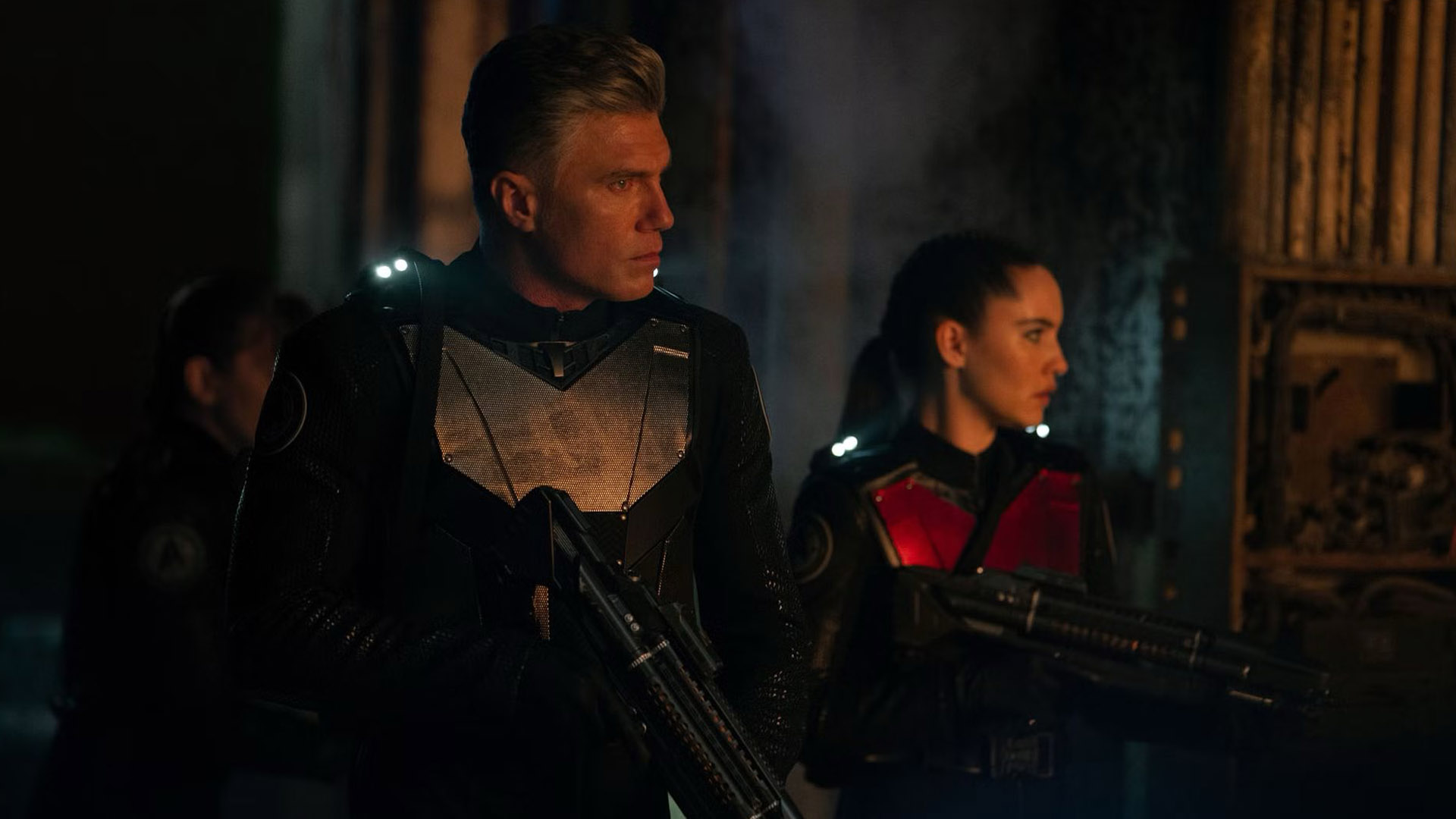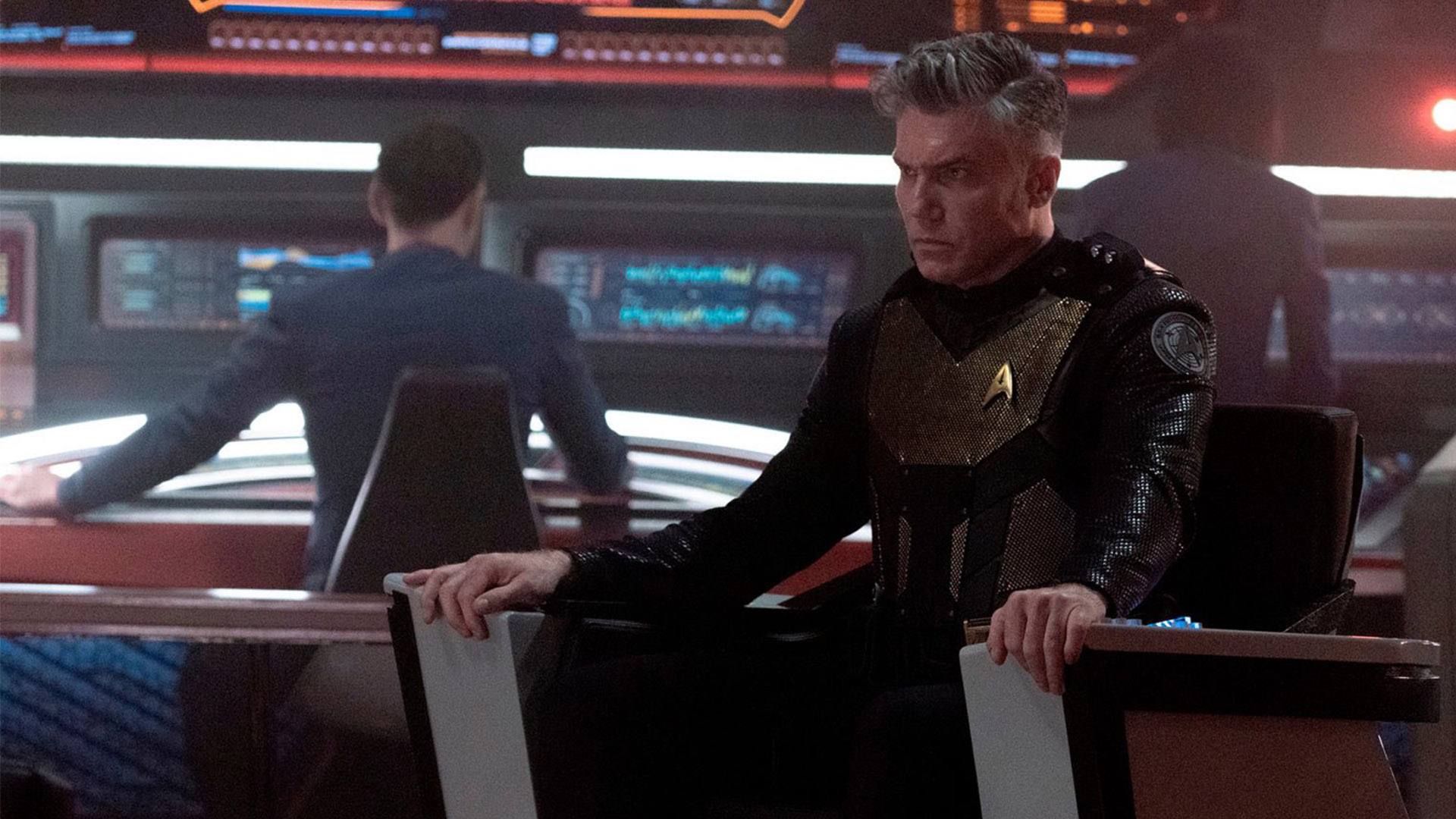
Warning: spoilers for the Strange New Worlds series finale follow. If you haven't seen the episode, look away now!
Solo or Rogue One? That’s the dilemma facing any writer venturing into prequel territory.
Going down the Solo route generally involves hiring younger actors to get under the skin of iconic characters, exploring the pivotal moments that shaped their personalities. Along the way you might learn how they got their names, how they completed a Kessel Run in 12 parsecs or less, and stumble on other pieces of information you never needed – or even wanted – to know.
The Rogue One route, meanwhile, tends to be more satisfying. Indeed, while the outcome of that particular Star Wars story was never in doubt – those Death Star plans were always going to find their way into Rebel hands – we knew next to nothing about the protagonists and their fates.
Since Star Trek: Discovery spin-off show Strange New Worlds first left Spacedock, it’s been caught between these two prequel doctrines. On the one hand, this iteration of the USS Enterprise is populated by numerous legacy characters who date back to the 1960s. On the other, they’re embarking on missions yet to be documented in any ship’s log, meaning their adventures should be an opportunity to explore new frontiers.
Unfortunately, that isn’t always the case in a second season that sometimes feels like it’s been designed as an origin story for the classic Original Series. In fact, it’s something of a disappointment that a series that showed so much potential in its first year is often reduced to a Solo-style exercise in box-ticking nostalgia.
An obsession with the past

Nostalgia doesn’t have to be a problem in itself, of course – in another corner of the Star Trek universe, Picard’s five-star third season was a triumph because it embraced the franchise’s history to tell a story that looked to the future. But in Strange New Worlds’ second year, an obsession with the past (or, in the fictional Star Trek timeline, the future) is a distraction from the trials and tribulations of a crew that had already earned its place among the franchise’s best. This is storytelling that relies on viewers having extensive knowledge of Trek history, and as such it’s weighed down by those perennial prequel afflictions – too much foreshadowing and too many metaphorical winks at the camera.
That said, it’s undeniably great to see Uhura (underused in both the Original Series and the classic movie saga) playing such a pivotal role, while Number One and Doctor M’Benga (whose pre-Strange New Worlds appearances were limited to Trek pilot 'The Cage' and two episodes of the Original Series, respectively) are such unknowns that they feel like new characters. And even though Spock is arguably the most famous character in the history of the franchise, his on/off romance with Nurse Chapel – probably the main dramatic throughline in the season – adds new facets to the ongoing conflict between his Vulcan and human heritage.
With all that going on, however, the three “Special Guest Star” appearances from a certain James Tiberius Kirk (following on from his appearance in the season one finale) feel unnecessary. The character is so iconic (even in this clunky new incarnation) that he steals the limelight from every other one in the show – limelight that would be better pointed at the brilliant Captain Pike or Lt Ortegas. But his presence adds so little to the arc of the season that it wouldn’t be worse off if former The Vampire Diaries star Paul Wesley was playing some other ambitious young Starfleet officer who can’t keep away from the Enterprise.
You also have to wonder why the young engineer Pike and his away team encounter in the finale had to be Montgomery “Scotty” Scott (played here by actual Scot Martin Quinn). It’s an example of the same small universe syndrome that’s led to every pivotal event in another famous galaxy (y’know, the one that’s far, far away) being connected to the Skywalker or Palpatine families.
Pushing boundaries

And yet despite all the nods to the Star Treks of the past, Strange New Worlds season 2 makes an admirable effort to push the boundaries of a “story of the week” format that’s been a Trek staple since the ’60s. In fact, it arguably tries too hard, with way more gimmicky episodes than you’d expect in a standard TV season. The most blatant headline grabber is musical episode 'Subspace Rhapsody', an ambitious hour of TV that boldly goes where Buffy the Vampire Slayer’s classic 'Once More With Feeling' went before. Even though the plot makes no logical sense it’s technically brilliant, featuring catchy tunes, elaborate dance routines, and a cast who wholeheartedly embrace the opportunity to burst into song. A troupe of foot-tapping Klingons is truly a sight to behold, though – to paraphrase Mr Worf – they probably do not discuss it with outsiders.
Even better is the much-trailed crossover with animated stablemate Lower Decks, the one place where this season’s obsession with Trek’s history feels appropriate. By sending unashamed Starfleet fanboy Brad Boimler back in time from the Next Generation era, the writers’ room find a vessel to express their own love for the icons of the Federation. It’s an ingenious case of having your cake and eating it.
Beyond these space oddities, the season is an eclectic – but uneven – selection of standalones. Ultimately it’s the darker stories that land best, whether it’s La’an and an alternative timeline Kirk travelling back in time to protect a young Khan Noonien Singh (yes, really) in 'Tomorrow and Tomorrow and Tomorrow', or M’Benga, Chapel, and Ortegas trying to put aside their memories of the Federation/Klingon war in the morally grey 'Under the Cloak of War'.
And the season arguably saves its best for last, with the much-anticipated return of the Gorn in the season finale. Strange New Worlds has frequently shown a willingness to stretch existing canon close to breaking point, but the decision to reinvent the reptilian race as a Borg-level threat is arguably the most satisfying. 'Hegemony' is tense, riffs off Aliens, and – in a nod to iconic The Next Generation two-parter 'The Best of Best Worlds' – ends on a cliffhanger that leaves most of the crew in harm’s way. Let’s just say things aren’t looking too good for La’an, Ortegas, and Pelia, three non-legacy characters who also happen to wear red shirts…
It’s the perfect set-up for the already confirmed third season. Hopefully, by the time it arrives James T. Kirk will have found another ship to occupy his time, and the writers will be searching for prequel inspiration in Rogue One rather than Solo.
Every episode of Star Trek: Strange New Worlds season 2 is available on Paramount Plus in the US and the UK.







